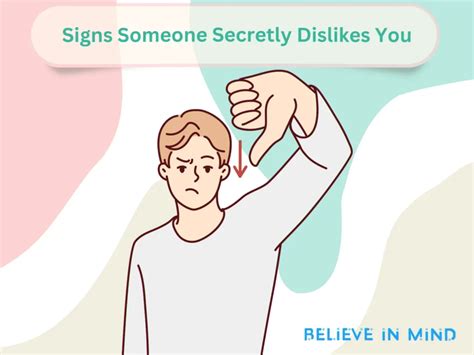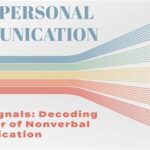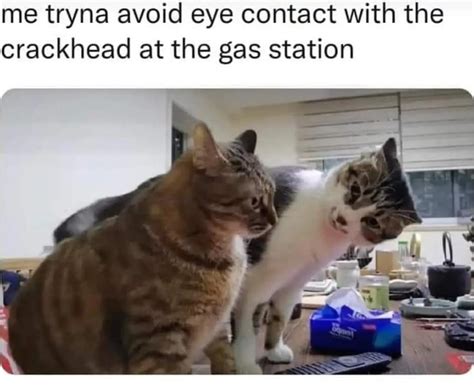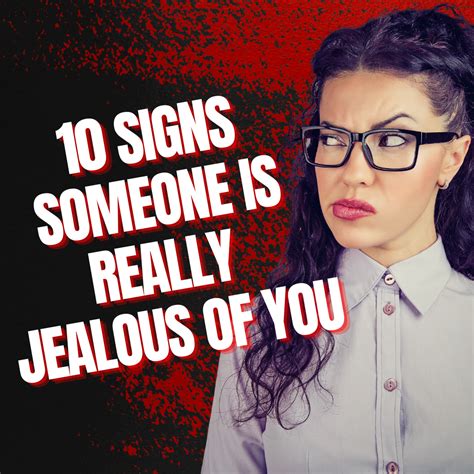
Discerning veiled animosity can be challenging, but recognizing subtle behavioral cues such as minimal eye contact, terse communication, and a general lack of engagement can provide insights into whether someone secretly dislikes you. These nonverbal signals, coupled with dismissive language and an avoidance of personal interaction, often betray underlying negative sentiments.
Detecting hidden dislike requires careful observation and an understanding of social dynamics. According to experts, several behavioral patterns can indicate that someone harbors negative feelings despite outward appearances. Recognizing these signs allows individuals to navigate social situations more effectively and protect themselves from potential negativity.
Subtle Signals of Dislike
One of the primary indicators of concealed dislike is limited eye contact. Individuals often avoid prolonged eye contact with those they dislike, as maintaining eye contact can create a sense of intimacy and connection they wish to avoid. “They avoid eye contact because eye contact can feel intimate,” explains the Yahoo Lifestyle article. This avoidance is not merely shyness but a deliberate attempt to create distance.
Another telltale sign is terse or dismissive communication. When someone dislikes you, their responses may be brief, lacking in enthusiasm, and devoid of genuine interest. They may offer one-word answers or change the subject abruptly to disengage from the conversation. This behavior contrasts sharply with how they interact with people they like, with whom they are typically more conversational and attentive.
Body language also plays a crucial role in revealing hidden feelings. Crossed arms, a turned-away posture, and a lack of mirroring (subconsciously imitating another person’s gestures) are all indicators of disinterest or dislike. These nonverbal cues suggest that the person is closed off and unreceptive to interaction. “Body language speaks volumes, even when words don’t,” experts note.
Furthermore, a lack of personal engagement is a significant sign. Someone who dislikes you will likely avoid sharing personal information, asking about your life, or including you in social activities. This avoidance stems from a desire to maintain emotional distance and prevent the formation of a deeper connection. They may also exclude you from jokes, stories, or inside information shared with others.
Dismissive language is another red flag. Individuals who dislike you may use subtle put-downs, sarcasm, or backhanded compliments to undermine your confidence or diminish your achievements. These remarks are often disguised as humor but carry a clear undercurrent of negativity. Additionally, they may consistently disagree with your opinions or dismiss your ideas without giving them due consideration.
More Overt Indicators
While subtle cues are common, more overt signs of dislike can also emerge. These may include blatant ignoring, gossiping behind your back, or actively excluding you from group activities. Such behaviors demonstrate a clear lack of respect and a deliberate attempt to marginalize you.
Ignoring someone, whether in person or online, is a powerful way to convey dislike. This can manifest as not responding to messages, avoiding acknowledgment in group settings, or simply pretending not to see you. This behavior is particularly hurtful because it suggests that your presence is insignificant or unwanted.
Gossiping and spreading rumors are also indicative of dislike and a desire to damage your reputation. This behavior is often motivated by jealousy, insecurity, or a need to feel superior. Engaging in gossip not only harms the target but also creates a toxic environment within the group.
Actively excluding someone from social gatherings, meetings, or projects is another overt sign of dislike. This exclusion can be deliberate and hurtful, leaving the person feeling isolated and rejected. It also demonstrates a lack of respect for their contributions and a desire to minimize their involvement.
The Impact of Perceived Dislike
Perceiving that someone dislikes you can have a significant impact on your emotional well-being. It can lead to feelings of anxiety, insecurity, and self-doubt. It may also affect your social interactions and your overall sense of belonging.
The constant awareness of being disliked can create a sense of hypervigilance, where you become overly sensitive to the other person’s behavior and constantly analyze their words and actions for signs of negativity. This can be exhausting and detrimental to your mental health.
Moreover, perceived dislike can erode your self-confidence and make you question your own worth. You may start to believe that there is something inherently wrong with you or that you are undeserving of positive relationships. This can lead to a downward spiral of negative self-perception.
Strategies for Coping
When faced with the realization that someone dislikes you, it is essential to adopt healthy coping strategies to protect your emotional well-being. These strategies may include setting boundaries, seeking support from trusted friends or family members, and focusing on self-care.
Setting boundaries is crucial for limiting the impact of the other person’s negativity on your life. This may involve reducing contact with them, avoiding conversations that are likely to be unpleasant, and refusing to engage in arguments or conflicts. “Create distance, both physically and emotionally, to protect yourself,” advises the article.
Seeking support from trusted friends or family members can provide you with a much-needed emotional outlet. Talking about your feelings and experiences with someone who cares about you can help you to process your emotions and gain a fresh perspective. They may also offer valuable advice and encouragement.
Focusing on self-care is essential for maintaining your emotional and physical health. This may involve engaging in activities that you enjoy, practicing relaxation techniques, and prioritizing your own needs. Taking care of yourself can help you to build resilience and cope with the challenges of dealing with someone who dislikes you.
Professional Insights
Experts in psychology and social behavior offer valuable insights into understanding and managing situations where dislike is present. They emphasize the importance of self-awareness, emotional intelligence, and effective communication.
Self-awareness involves recognizing your own emotions, strengths, and weaknesses. Understanding your own triggers and vulnerabilities can help you to respond more effectively to the other person’s behavior. It can also prevent you from taking their dislike personally.
Emotional intelligence involves understanding and managing your own emotions, as well as recognizing and responding to the emotions of others. Developing emotional intelligence can help you to navigate social situations with greater ease and empathy. It can also improve your communication skills and strengthen your relationships.
Effective communication involves expressing your thoughts and feelings clearly and respectfully. This may involve asserting your needs, setting boundaries, and resolving conflicts in a constructive manner. Effective communication can help you to address the underlying issues that may be contributing to the other person’s dislike and potentially improve the relationship.
Addressing the Situation
In some cases, it may be possible to address the situation directly by talking to the person who dislikes you. However, this approach should be used with caution and only when you feel safe and confident. It is essential to approach the conversation with a calm and non-confrontational attitude.
Before initiating a conversation, consider the potential outcomes and whether the effort is likely to be productive. If the person is consistently hostile or unwilling to engage in constructive dialogue, it may be best to avoid direct confrontation. In such cases, focusing on managing your own reactions and protecting your emotional well-being is more important.
When addressing the situation, express your feelings calmly and respectfully. Use “I” statements to avoid blaming or accusing the other person. For example, instead of saying “You always ignore me,” try saying “I feel ignored when you don’t respond to my messages.”
Listen actively to the other person’s perspective, even if you disagree with it. Try to understand their point of view and acknowledge their feelings. This can help to de-escalate the situation and create a more open and collaborative dialogue.
Be prepared to compromise and find common ground. It may not be possible to completely resolve the dislike, but you may be able to establish some boundaries and expectations that will improve the relationship.
When to Walk Away
In some cases, despite your best efforts, the dislike may be irreconcilable. When the relationship is consistently negative, toxic, or harmful, it may be necessary to walk away and distance yourself from the other person.
Walking away does not mean that you have failed or that you are giving up. It means that you are prioritizing your own well-being and protecting yourself from further harm. It is a sign of strength and self-respect.
When walking away, do so with grace and dignity. Avoid engaging in arguments or conflicts. Simply state that you need to distance yourself from the relationship and wish them well.
Focus on building positive relationships with people who support and value you. Surround yourself with individuals who uplift your spirits and contribute to your overall well-being.
Societal Implications
The phenomenon of hidden dislike is not merely a personal issue but also has broader societal implications. It can contribute to workplace conflicts, strained family relationships, and social divisions. Understanding the dynamics of dislike is essential for creating more harmonious and inclusive communities.
In the workplace, hidden dislike can lead to decreased productivity, low morale, and increased employee turnover. Addressing these issues requires fostering a culture of open communication, mutual respect, and conflict resolution.
In family relationships, hidden dislike can create tension, resentment, and estrangement. Addressing these issues requires honest communication, empathy, and a willingness to work through conflicts.
In society, hidden dislike can contribute to prejudice, discrimination, and social divisions. Addressing these issues requires promoting tolerance, understanding, and inclusivity.
Conclusion
Detecting hidden dislike requires careful observation and an understanding of social dynamics. Recognizing the subtle and overt signs of dislike can help you to protect your emotional well-being and navigate social situations more effectively. By setting boundaries, seeking support, and focusing on self-care, you can cope with the challenges of dealing with someone who dislikes you. In some cases, addressing the situation directly may be possible, but in others, walking away may be the best option. Understanding the societal implications of hidden dislike is essential for creating more harmonious and inclusive communities.
By developing self-awareness, emotional intelligence, and effective communication skills, you can build stronger relationships and foster a more positive and supportive environment. Recognizing the signs, understanding the impact, and implementing coping strategies are all crucial steps in managing the complexities of human relationships and protecting your emotional health. The key is to prioritize your well-being and surround yourself with people who value and support you.
Frequently Asked Questions (FAQ)
-
How can I tell if someone genuinely dislikes me or if I’m just being paranoid?
Distinguishing between genuine dislike and paranoia requires careful consideration of the evidence. Look for consistent patterns of behavior, such as those described in the article, rather than isolated incidents. Consider whether others have noticed the same behavior and whether there is a rational explanation for the person’s actions. If you are unsure, seek feedback from trusted friends or family members. Remember, “Trust your gut, but also consider objective evidence,” notes the original article. If the signs are consistent and pervasive, it is more likely that the person dislikes you. However, if the signs are ambiguous or infrequent, it may be due to other factors, such as stress, personality differences, or miscommunication. Keeping a journal of interactions can also help you to identify patterns and gain clarity.
-
What should I do if a colleague at work dislikes me?
Dealing with a disliked colleague requires a strategic approach focused on maintaining professionalism and protecting your well-being. First, assess the situation objectively and identify the specific behaviors that are causing concern. Document these behaviors and any impact they are having on your work performance. Next, set clear boundaries and limit your interactions with the colleague to essential work-related matters. Avoid engaging in gossip or personal discussions. If the colleague’s behavior is creating a hostile work environment or interfering with your ability to perform your job, consider reporting the issue to your supervisor or human resources department. Prepare a detailed account of the incidents, including dates, times, and witnesses. Remember, “Maintaining a professional demeanor is key, regardless of personal feelings,” as advised in the Yahoo Lifestyle article. Focus on your work, build positive relationships with other colleagues, and seek support from friends or family members.
-
Is it possible to change someone’s mind about disliking me?
While it is possible to improve a strained relationship, changing someone’s fundamental feelings about you is often challenging and not always achievable. The key is to focus on behaviors that you can control, such as improving communication, showing empathy, and addressing any legitimate grievances. Begin by reflecting on your own behavior and identifying any areas where you could improve. Listen actively to the other person’s perspective and try to understand their point of view. Express your feelings calmly and respectfully, using “I” statements to avoid blaming or accusing them. “Sometimes, a simple apology can go a long way,” suggests the source material. Be prepared to compromise and find common ground. However, if the person is consistently hostile, unwilling to engage in constructive dialogue, or exhibits toxic behavior, it may be best to accept that the dislike is irreconcilable and focus on managing your own reactions.
-
What are some healthy ways to cope with the emotional impact of being disliked?
Coping with the emotional impact of being disliked requires a focus on self-care, emotional regulation, and building a strong support system. Prioritize activities that you enjoy and that help you to relax and de-stress, such as exercise, meditation, or spending time in nature. Practice mindfulness techniques to stay present in the moment and avoid dwelling on negative thoughts. Seek support from trusted friends, family members, or a therapist. Talking about your feelings can help you to process your emotions and gain a fresh perspective. Challenge negative self-talk and replace it with positive affirmations. Focus on your strengths and accomplishments, and remind yourself that you are worthy of love and respect. “Remember, their feelings don’t define your worth,” the Yahoo article emphasizes. Set boundaries to protect yourself from further negativity, and consider limiting contact with the person who dislikes you.
-
How do I prevent myself from disliking someone else?
Preventing yourself from disliking someone else requires a conscious effort to cultivate empathy, practice forgiveness, and manage your own biases. Start by challenging your initial judgments and assumptions about the person. Try to understand their perspective and see the world through their eyes. Look for common ground and focus on their positive qualities. Practice empathy by imagining yourself in their situation and considering the challenges they may be facing. “Everyone is fighting their own battles; remember that before you judge,” the article implies. Forgive past grievances and let go of resentment. Holding onto anger only hurts you in the long run. Be mindful of your own biases and stereotypes, and challenge them actively. Expose yourself to diverse perspectives and cultures to broaden your understanding of the world. If you find yourself struggling to manage your feelings, consider seeking guidance from a therapist or counselor.









